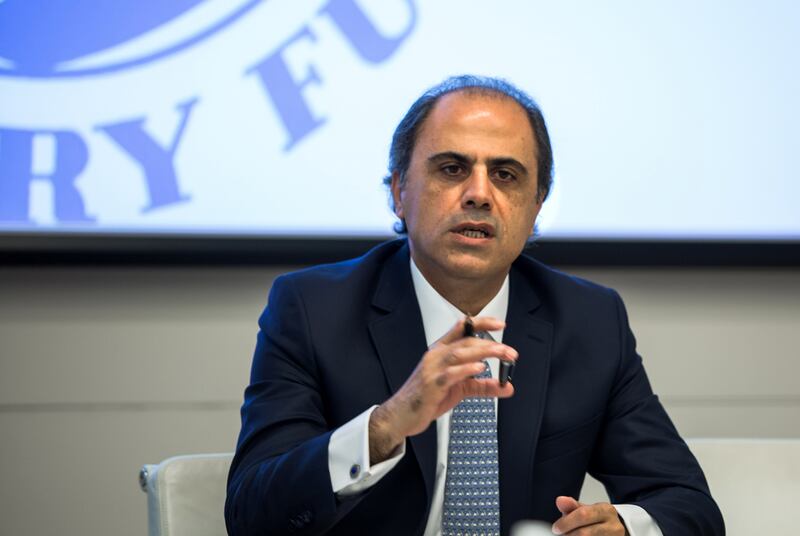The UAE, Saudi Arabia and other Arabian Gulf members of Opec are unlikely to be affected by a possible oil output cut next year as their non-oil sector continues to grow and prices for the commodity are projected to remain firm, an International Monetary Fund official said.
Opec and a group of oil producers led by Russia could collectively trim their crude production by up to a million barrels per day next year if needed, to help balance the oil market amid a supply glut, the Saudi Oil Minister Khalid Al Falih said on Monday.
The Opec +, as the alliance is called, started in January last year culling 1.8 million bpd from the market until May this year, when they reversed the cuts and pumped more crude to meet market demand.
“They had increased their production faster than expected in the Opec+ agreement,” said Jihad Azour, the director of the Middle East and Central Asia Department at the IMF. “Therefore going back to their level of production before the agreement will not have a negative impact on their economy.”
The growth in non-oil gross domestic product next year and high oil prices will help temper any impact from lower oil output, he added.
An oil price increase of $10 a barrel contributes to an improvement in the fiscal balance by 3 per cent of GDP and improvement of the external account by a 3.5 per cent of GDP, he said.
Growth in the six-member GCC countries is expected to recover to 2.4 per cent in 2018 and 3 per cent in 2019, after shrinking 0.4 per cent last year. Growth will accelerate thanks to the implementation of public investments projects and infrastructure investment, among other measures.
_____________
Read more:
[ US-China trade war forces IMF to cut global economic forecast for first time since July 2016 ]
[ Trade barriers need reforms to temper tensions, IMF and World Bank say ]
_____________
Saudi Arabia, the world’s biggest oil exporter, is growing its non-oil sector through a series of measures, aided by its biggest ever budget during this year and a stimulus programme. Last month, Saudi Arabia said non-oil revenues rose 48 per cent year-on-year in the third quarter to 211 billion riyals (Dh206.6bn).
The kingdom will expand 2.2 per cent points this year and 2.4 per cent in 2019, 0.3 and 0.5 percentage points higher than the July forecast, the IMF said in October. The expansion follows a 0.9 per cent contraction last year.
In the UAE, Abu Dhabi announced in June a three-year Dh50bn stimulus programme that will help woo foreign direct investments, create private sector jobs and propel economic growth.
The Emirates, the Arab world's second largest economy, will expand 2.9 and 3.7 per cent in 2018 and 2019, respectively, up from its 0.8 per cent growth last year. The country has announced a series of measures aimed at shoring up economic growth, including lowering the cost of doing business and offering 10-year residency to certain professions.
Abu Dhabi’s economy will expand 2.7 per cent this year and 3.4 per cent in 2019, while Dubai’s GDP will grow 3.3 per cent this year and 4 per cent in 2019, Mr Azour said.
The IMF official cautioned Gulf countries from getting complacent due to the increase in oil prices this year versus last year.
“It is very important for GCC countries not to be complacent and maintain the path of fiscal reforms and fiscal adjustment that they have started,” he said.
The UAE and Saudi are leading reforms in the region, with the introduction of 5 per cent VAT and excise taxes, as well as lowering subsidies on energy products and utilities. Other countries are expected to follow suit, with Bahrain aiming to implement reforms in January 2019, as part of a $10bn aid package extended by Kuwait, Saudi Arabia and the UAE.
Other risks that face the region include trade war tensions, which could affect the trade partners of the GCC and lower levels of FDI, the IMF official cautioned.
Faster increases in US interest rates also pose a threat to GCC economies, which peg their currencies to the dollar except for Kuwait. Higher interest rates would increase the cost of borrowing for GCC countries. The US Federal Reserve is expected to raise rates a fourth time this year when it meets in early December.






